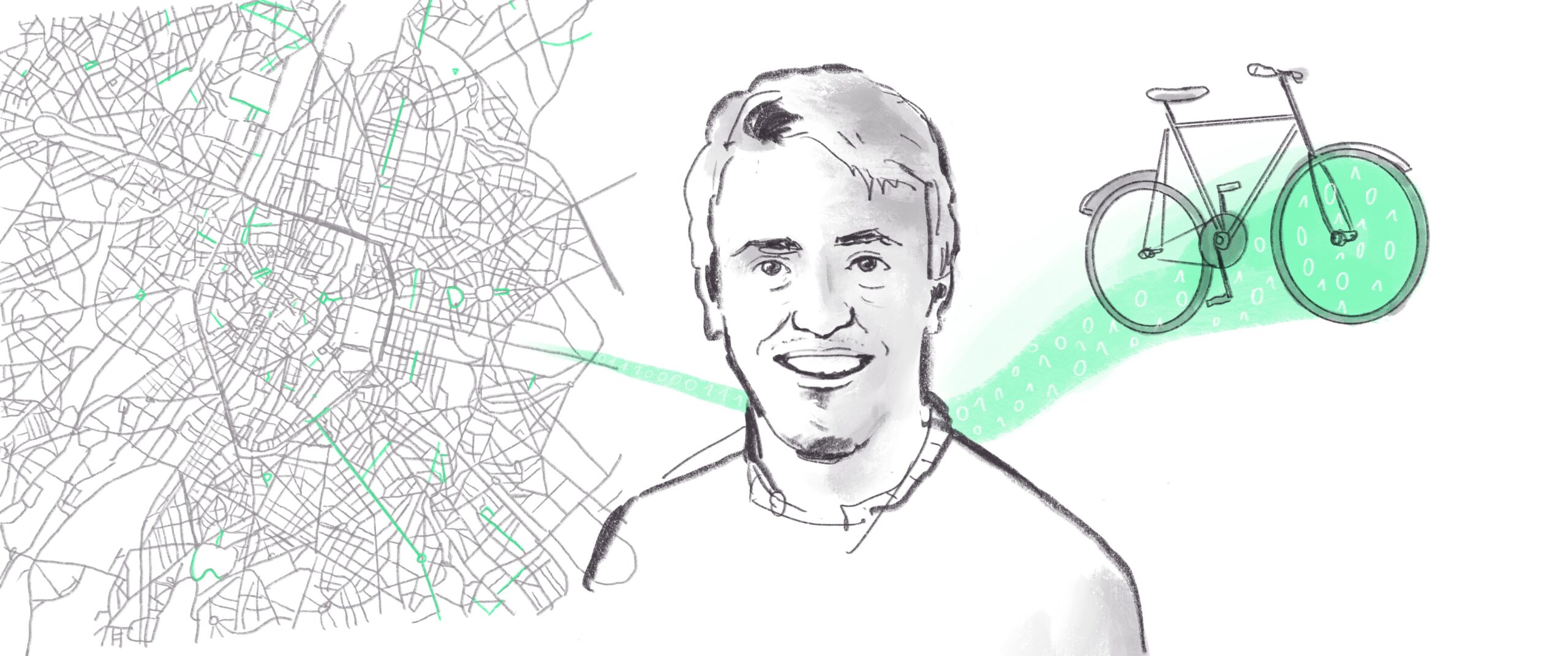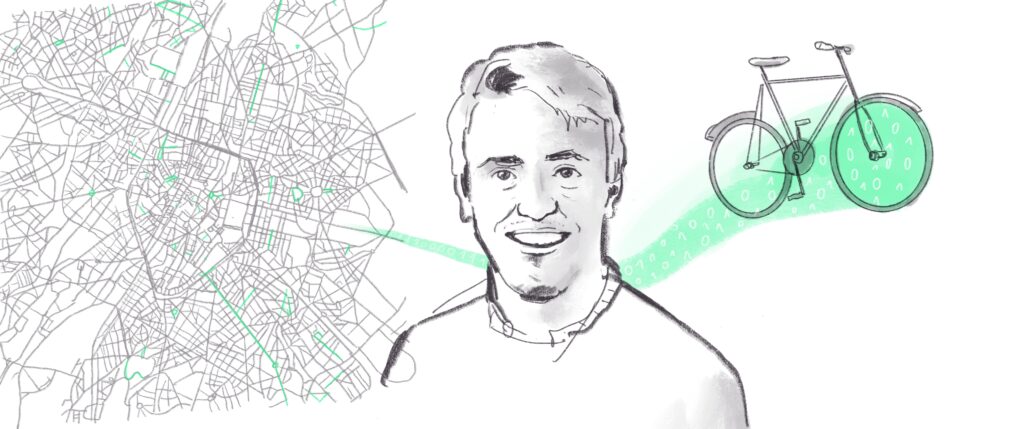
On Vacation in Belgium’s Gardens
Urlaub in Belgiens Gärten
Interview with Dries Van Ransbeeck, September 11 2020
Digital Citymaking initiatives can be found around the globe. Dries Van Ransbeeck shares how he and other volunteers in Belgium use their local and global networks to generate data that help them express important issues, but also develop solutions for very practical challenges – such as vacationing safely during a pandemic.
Digitale Stadtmacher-Initiativen können auf der ganzen Welt beobachtet werden. Dries van Ransbeeck berichtet, wie er und andere Freiwillige in Belgien ihre lokalen und globalen Netzwerke nutzen, um Daten zu generieren, mit denen sie wichtige Themen kommunizieren können, aber auch Lösungen für ganz praktische Herausforderungen entwickeln – etwa ein sicherer Urlaub während einer Pandemie.

As a digital citymaker, open data enthusiast and avid cyclist, Dries Van Ransbeeck is highly involved within a Belgian network of like-minded people. Until recently, he was the coordinator for the Belgian chapter of Open Knowledge, a global initiative for open access to information and data. Although independent in terms of their activities, the initiative is part of a movement taking place all over the world, of people advocating for more open knowledge but also exchanging best practices and ideas for projects. Even during the pandemic-induced lockdown, Mr. Van Ransbeeck co-organized a digital edition of the Open Summer of Code, a one-month program for students to work on open source projects together, for the tenth year running. Students from programming, design, communications and business programs are connected with professional coaches to come up with solutions for challenges faced by public and private partners.
Being at the crossroads of all those different actors means that you get input, and also projects and impact that really make sense for broader society.
Dries Van Ransbeeck 09/2020
Dries Van Ransbeeck finds his motivation in the multifaceted work with these different stakeholders, from governmental organizations to private companies, civil society, and research institutions. The mere connection of different people in a project can sometimes lead to a change in attitudes, but the projects themselves go far beyond that in their public impact. For instance, the project EqualStreetNames brought a group of volunteers together who mapped the streets of Greater Brussels according to the gender of their names. Not all participants were in it to make a statement from the beginning, but rather because they enjoyed mapping. However, through the process of collaborating on a project around gender equality, they were sensitized to the issue themselves. But most importantly, citizens were able to harness digital tools to communicate their concerns with the government and broader society. As Mr. Van Ransbeeck puts it, citizens are empowered to “move up the participation ladder” from passive information towards taking action. In the example of EqualStreetNames, a debate on renaming streets has been fuelled and has so far led to one tunnel being renamed.
While going through the whole process with citizens, it also showed us that we were the party facilitating citizens in creating a voice towards society, towards government.
Dries Van Ransbeeck 09/2020
But the impact they observed did not stop there. EqualStreetNames started out in Brussels as an open source project, meaning that anyone would be able to replicate it in another city. The data itself came from other open sources – geographic data from OpenStreetMap and genders from Wikipedia articles. The volunteer work consisted in linking the existing data. The knowledge thus created was not a one-off but based on global data, which made the process sustainable and contributed to a bigger movement. It does require some technical skills, Mr. Van Ransbeeck admits, but in most cities it would not take long to find other volunteers willing to help. The project has since triggered a larger movement and was replicated in a few places in the Netherlands as well as Berlin.
He describes the beginning of the pandemic as a tremendous change as Belgium entered into its first lockdown and all activities moved online. Many activities were slowed down and refocused on a neighborhood level. Personally, Mr. Van Ransbeeck began checking out local trails on OpenStreetMaps and adding new ones to it. On his walks, he came up with a new idea: Welcome To My Garden, a platform similar to Couchsurfing but for tents, as a pandemic-safe option for domestic vacations. After setting up a basic map, more than 300 users registered and offered their gardens within the first week. At this point, it became too much work to add new entries to the map manually, and Dries Van Ransbeeck had to reach out to his local community to find developers willing to set up an automatic platform. By the time of the interview, 1.900 gardens had been added, with the first popping up in Germany. This proves, once again, the potential of new ideas to spread quickly via online media when their timing is right. But as Mr. Van Ransbeeck notes, the reason he was able to set it up as quickly as he did was because of his personal network, which had been growing over the years.
The latest project started by the volunteers once again aims to collect and share data on a topic that is currently underserved: while there is plenty of data on cars, not much is known about how cyclists move around the city. Bike Data Project is a platform for cyclists to contribute trip data with the aim of making cities more bike-friendly. As usual, all non-sensitive data is publicly available, following a principle of differential privacy, meaning the data is aggregated and not attributable to individuals.
What makes such projects special is their situation at the intersection of public interest and private initiatives. In comparison, private initiatives are more flexible and quicker to respond to pressing issues and new situations than their counterparts in public administration. Their success also seems to come down to the dedication of individuals, but especially the interaction within networks. The better and easier it is for different stakeholders to collaborate, the higher the number and quality of projects will be.
Dries van Ransbeeck was the coordinator of the Belgian chapter of Open Knowledge until 2020. He is currently on a quest to create a bicycle that is local, open and circular.